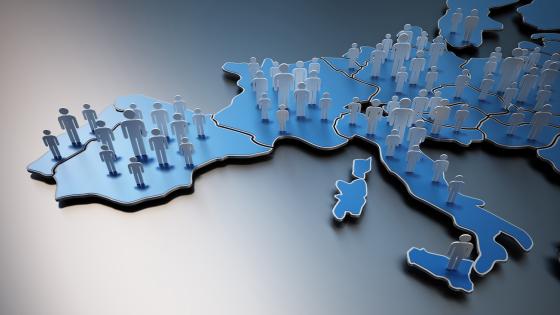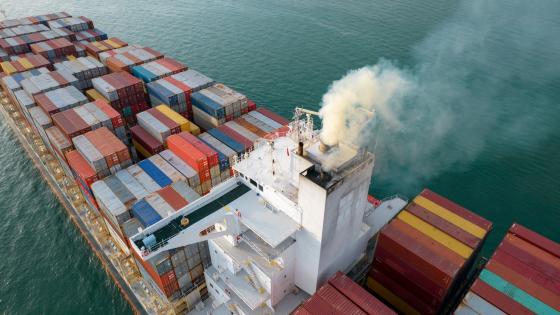This year marks the 15th year of Turkey’s application for EU membership.
- Its pre-accession status, which should come with a further deepening of economic integration accompanied by domestic reforms and appropriate market institutions, as well as the ongoing negotiations on the 33 chapters for accession are beginning to lose credibility.
- The political impetus inside the EU has weakened considerably, with sensitivities about a more religiously conservative Turkish society, the mere size of the country, the stagnation of human rights reforms, the slow pace of structural and economic reforms, and the lack of political will to resolve the Cyprus question.
- The political resolve in Turkey also waned given the Arab Spring and Turkey’s strategic interests in the region, the healthy economic growth of Turkey before and during the crisis and the recurrent strains in high-level political relations between the EU and Turkey.
Given lingering doubts about progress, is there a sensible alternative?
Let us not exaggerate
In 2011, Turkey’s EU secretariat was transformed into the ‘EU Ministry’ with the mandate of pursuing full EU membership. Market integration with the EU27 is strong, with 42% of trade taking place with the EU and a staggering 81% of FDI originating from the Union (2008–10). EU’s pre-accession agricultural funds are supporting the needed transformation of Turkish agriculture.
Turkish per capita income is comparatively low at 31% of the EU27 2010 average but real economic growth since 2005 has averaged 4%. This partly results from the customs union with the EU, exposing Turkey to fierce competition inside the euro-Turkish customs area as well as from WTO partners. The inward FDI wave is also related to the customs union. Excellent access to the single market and an improving investment climate in Turkey combined with low costs and increasing familiarity with European standards and regulatory requirements.
On the EU side, membership of Turkey is often seen as problematic, whereas there is much to say for considering Turkey as an enrichment: the EU would benefit from a competitive and dynamic emerging economy, a young labour force, great market opportunities for business, and an effective gateway to the markets of the Middle East, the Black Sea, and central Asia. Besides, Turkey is quite ‘European’ in many ways. Turkey is in NATO, the OECD, the Council of Europe and the OSCE; its tourism is essentially European; millions of Turks live in the EU and many Turks study there.
Gylfason and Wijkman (2010) have argued on this site that Turkey should be invited to enter the EEA (European Economic Area) “as a way station to future membership”. The EEA as a “waiting room” would provide Turkey with a “less risky strategy than the current membership negotiations, where the outcome is all or nothing”. Unfortunately, this is a bad idea. It would be bad for the EEA, unsuitable for Turkey, and unhelpful for the EU.
Undermining the EEA?
The EEA agreement entered into force in 1994. Its main purpose was to deepen and widen the scope of market integration between the EFTA countries and the EU by enlarging the internal market (with the exception of fisheries and agriculture) to the former. Over the last 20 years “EEA countries have demonstrated an excellent record of proper and regular incorporation of the acquis [EU laws] into their own legislation” (EU Council Conclusions on EFTA 2010). Indeed, the three EFTA-EEA countries achieved the agreed 1% transposition deficit target in 2011, whereas just 11 EU Member States did the same. The EEA has its own ‘surveillance’ body and a Court. These two bodies and their case practices are very closely aligned to the EU ones. For all practical (economic) purposes, the EEA is a part of the single market, also in the dynamic sense that the new acquis is continuously adopted by the EEA-3 countries’ national parliaments.
The ease with which the EU internal market acquis is implemented within the EEA stems from the well-recognised mutual economic benefits for the EEA-EFTA countries, their highly competitive economies and not least the political consensus among these 30 countries when it comes to the internal market. Besides having capable public administrations, it is this prior consensus on the single market which renders it feasible even for Liechtenstein or Iceland to incorporate new EU laws into their domestic legal regimes and enforce them properly.
Getting Turkey into the EEA would undermine the EEA and its proper functioning. In the years to come, depending on Turkey’s progress in adopting the single market acquis, the current EEA-EFTA countries would consider it as a major threat to their ‘arrangement’.
This matters because the EU is in no position to ‘offer’ Turkey EEA membership. Before becoming a non-EU EEA country, one must first be accepted as an EFTA member. In addition, there are two other formidable objections to Turkish EEA membership:
- The proper functioning (and economic gains) of the EEA would be seriously damaged by the implementation and enforcement record of Turkey, even if it were to improve considerably, and
- The ‘absence’ of higher politics would be over and this would alter the EEA beyond recognition.
It is a mistake to suggest that the ‘waiting room’ idea implies a learning process during which one can, in the EEA, gradually improve implementation/ enforcement while getting ready for EU membership. Insofar as the single market is concerned, the EEA is identical to EU membership, as noted above. This is where the Turkish record so far is poor. The 2011 Commission progress report is littered with delays and problems in practically every single market–related chapter. Worse still, the EU/Turkish customs-union-plus in force since 1996 works but is still plagued with a series of implementation and enforcement issues as well as a backlog in regulations and European standards issues which form a blend of chapter 1 (free movement of goods) and chapter 29 (customs union and its annexes). Of the eight chapters declared a priority in 2006 (all single market), not one has yet been closed. EEA membership would require closing 21 chapters of the single market acquis – several of which have not even been opened yet – as well as the confidence of all EEA countries that Turkey has the ‘administrative capacity’ to enforce the acquis properly and promptly. An avalanche of bad-enforcement cases from Turkey would cause the collapse of the (small) EEA bodies and destroy the existing trust.
The politicisation of the EEA is also unwelcome. Once big Turkey would enter the EEA, the overall EU/Turkish relations would immediately affect the working and day-to-day problem solving in the EEA. Eventually, this would replace the current working relations inside the EEA, based on trust, by an attitude that EEA questions are ‘negotiable’.
EEA unsuitable for Turkey
Politically, Turkey wants nothing short of full EU membership, indeed not any ‘privileged partnership’. If it were to faithfully adopt all of the EU acquis, it might nevertheless be refused by a single EU country saying NO during ratification. Adopting only the 21 chapters of the single market acquis would signify a fundamental U-turn for the country. The reform process with respect to human rights, ‘justice-and-home-affairs’, foreign and security policy, and a range of institutional questions would all be set aside. Confronted with such a fundamental choice, Turkey would have to count its potential blessings (that a deep economic and political integration with the EU would yield) and assess seriously its regional alternatives when going it alone. Against going it alone, one can argue that its regional positioning need not be inconsistent with EU membership, or, better, is exactly one of the additional benefits for the EU and Turkey alike, once Turkey would be ‘in’. If ever Turkey, having completed pre-accession successfully, were rejected in a referendum in an EU country, it may well opt for a ‘workable’ economic relationship with the Union outside of, but very similar to, the EEA. The reason for this suggestion is obvious: the completion of the acquis is very demanding, a de facto reform of regulations, institutions, and policies of the country in a fundamental fashion, which cannot be thrown away so easily. The ‘privileged partnership’ will therefore only emerge after a long process, that is, out of a crisis, following referenda in the EU. This is why getting into the EEA during pre-accession is unsuitable to Turkey.
Turkey in the EEA is unhelpful to the EU
Finally, the EU position with regard to Turkey is clear. Pre-accession provides a well-tested framework with extensive legal and institutional help as well as special agricultural and cohesion funding, to guide Turkey towards the adoption of the acquis. The monitoring is strict, transparent, and annual. The EU itself is likely to bring in special provisions in the accession treaty helping the Union to adjust to Turkish membership. The experience with pre-accession helps the EU to prepare itself for the entry of a large country with an ‘emerging economy’ status. It is difficult in the light of the EU interest to come up with any argument in favour of getting Turkey in the EEA.
References
Atak, E (2001), “Harmonisation of Turkish Legislation and Practice with that of The EU”, Presentation to the Turkey-EU Joint Parliamentary Committee.
Council of the EU (2010), Council Conclusions on EU relation with the EFTA Countries, 3060th General Affairs Council Meeting, Brussels, 14 December.
Christensen MB, “EU-Turkey relations and the functioning of the EU”, Policy Brief, Centre for European Studies.
European Commission (2009), Internal Market Scoreboard Number 23, 12.
European Commission (2011), Turkey 2011 Progress Report Brussels, 12.10.2011 SEC(2011), 1201 final, pp.52-58.
Gylfason, T and P M Wijkman (2010), “Turkey’s road to Europe”, VoxEU.org, 24 April.




